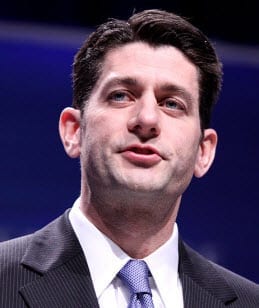 Paul Ryan (R., WI), the House Budget Committee Chairman, gave a significant speech at the Hoover Institution about health reform. At this Stanford University think tank, Ryan spoke about his own Medicare and Medicaid reform plan called “Path to Prosperity”.
Paul Ryan (R., WI), the House Budget Committee Chairman, gave a significant speech at the Hoover Institution about health reform. At this Stanford University think tank, Ryan spoke about his own Medicare and Medicaid reform plan called “Path to Prosperity”.
That said, he also took a moment to speak about the third health-care entitlement in the United States, which is a tax subsidy of $300 billion per year, which helps to cover employer-sponsored health insurance. This reform offers the chance for universal coverage to run in a market-oriented way.
Ryan explained that beyond the Medicare and Medicaid programs, the tax code is also making the spiraling healthcare inflation worse. The current legislation causes tax exemption for health insurance plans that are employer sponsored, no matter how much contribution an individual happens to make into that policy.
He added that this sends more of the compensation toward tax-free benefits, as opposed to taxable wage increases. Furthermore, it gives individuals who earn a higher income a way to artificially lower their taxable income by buying high-cost health coverage, which can then lead to a trend in health service overuse.
He said that “These structural flaws push affordable coverage out of reach for millions of Americans.”
Instead, Ryan has proposed an approach geared more toward the free market, which is actually a variation on the proposal made by John Goodman and Mark Pauly, to offer universal healthcare by way of a refundable form of tax credit.
It would mean a more “patient-centered” system and would allow an employee to bring a portable, refundable tax credit with them from one job to another, as opposed to relying on the current tax treatment of health insurance that is provided by employers. This would give an individual the chance to maintain health insurance even when it is difficult to find employment.
